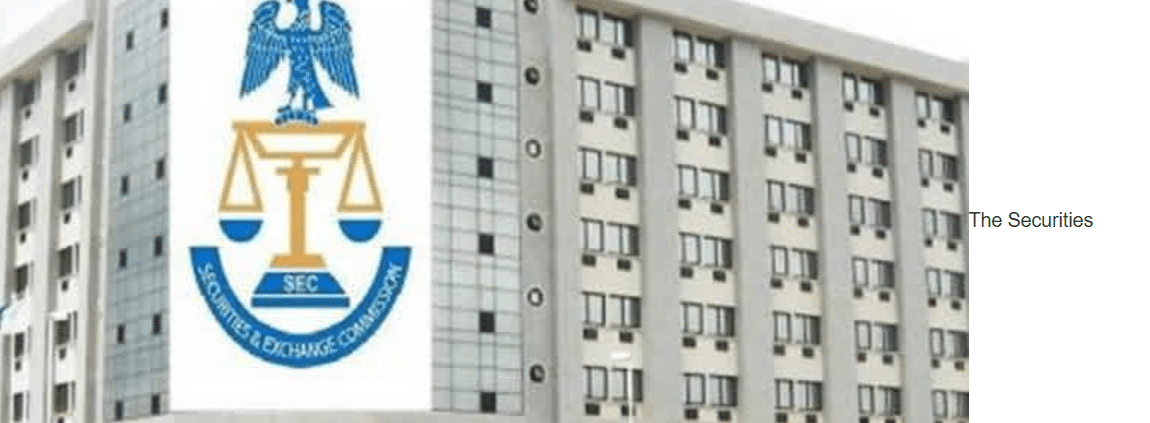Investment And Securities Act 2024: The Major Highlights Of The Nigeria’s New Investment Law
导言
The investment and Securities Act (ISA) 2024 was signed into law by President Bola Tinubu in March 2025. The Act repealed the Investment and Securities Act (ISA) 2007. The new Act is enacted to protect investors, ensure fair and efficient markets, and build trust in the financial system. The Investment and Securities Act is the principal law in Nigeria regulating investments and the capital market. Principally, it sets out the rules for public offers of securities, mutual funds, mergers and acquisitions of public companies, and other parts of the capital market. The Nigerian capital market is experiencing significant growth and progress; hence the government has enacted an up-to-date rule to strengthen investor trust, align our market with global standards and crack down on fraudsters.
Major Highlights in The Investment and Securities Act (ISA) 2024
The Act provides for several novel and notable provisions that are capable of transforming and safeguarding Nigeria’s Capital market and attracting the much-needed investment that will culminate in boosting Nigeria’s economy.
- Management of Systemic Risk
The Securities and Exchange Commission is empowered to request any capital market participant to submit any information or document where the Commission considers it necessary for the purpose of monitoring, mitigating and managing systemic risks in the capital market or where the Commission receives a request from a financial sector regulator. A capital market participant who fails to comply with the request made by the commission is liable to a penalty of not less than Five Million (N5, 000,000) and a further penalty of not less than Ten Thousand Naira (N10, 000) for every day that the infraction continues.
Systemic risk means a situation where a significant market participant or a number of market participants experiences financial distress or there is a major disruption in the transmission, execution or processing of securities transactions.[1]
- Strengthened Securities and Exchange Commission (SEC)
The Securities and Exchange Commission (SEC) now has greater authority to oversee and regulate the market. The Act reaffirms the SEC as the apex regulator and empowers it by improved tools for enforcement, which help tackle violations like insider trading, market manipulation, and fraudulent schemes. With these enhanced powers, the SEC can maintain a more transparent and secure market environment[2]
- Mandatory use of Legal Entity Identifier (LEI)
The Act introduces the mandatory use of Legal Entity Identifiers (LEIs) by participants in capital market transactions. Companies issuing securities or major investors will need an LEI for their transaction. This stipulation is designed to improve transparency in the conduct of securities transactions by helping regulators trace and verify transactions more easily across the globe, boosting transparency in our market. LEI can be seen as a global Identification card for financial entities[3]
- Transfer of Unclaimed Dividends into a trust fund
The Act requires that unclaimed dividends be transferred to a trust fund supervised by the Securities and Exchange Commission (SEC). Any unauthorized handling of unclaimed dividends is prohibited and punishable by: A one-time fine of ₦10 million and an additional daily fine of ₦50,000 until the violation is resolved.[4]
- Tougher Measures Against Ponzi Schemes and Illegal Investments
The Act expressly prohibits Ponzi schemes and other fraudulent investment schemes while it also prescribing tough penalties, including hefty jail terms for anyone promoting or operating such schemes. The Act stipulates that promoters and operators of any entity engaged in a prohibited scheme commits an offence and is liable on conviction to a penalty of not less than N20,000,000 or imprisonment to a term of 10 years or both.[5]
- Formal Acknowledgement of Cryptocurrencies and Other Digital Assets
Under the provisions of the new Act, Nigeria legally recognizes virtual/digital assets like cryptocurrencies as securities. By extension, crypto assets and platforms are now under SEC’s regulatory purview. Exchanges or companies dealing in digital assets must register and follow SEC rules just like stockbrokers or other finance companies. This step aims to curb fraudulent activities in the digital space while fostering trust and innovation in blockchain technologies.
- Upgrading Market Systems and Frameworks
The law also modernizes how our markets operate. It classifies types of stock exchanges into Composite and Non-composite Exchanges. A Composite Exchange is one in which all categories of securities and products can be listed and traded, while a Non-composite Exchange focuses on a singular type of security or product. [6]
- Strengthening the Investments and Securities Tribunal
The Act strengthens the Investments and Securities Tribunal, the special court for capital market disputes – so it can resolve issues faster and uphold investor rights. The provisions pertains to the Composition of the Tribunal (increased the number of members from 10 – 12 to be appointed by the president as against appointment by the minister in the repealed Act), constitution of the Tribunal, qualification and appointment of the Chief Registrar as well as the jurisdiction of the Tribunal to enhance the ability of the Tribunal to optimally discharge its mandate.[7]
- Issuance of Securities by Sub-Nationals and their Agencies
Salient provisions of the Act address existing restrictions in respect of raising of funds from the capital market by Sub-Nationals to allow for greater flexibility in this regard. State and local governments can now raise funds through the capital markets for public projects like infrastructure or healthcare. This reduces their reliance on federal allocations or debt, fostering economic development at sub-national levels while increasing transparency in fund utilization.[8]
- Modification of general Insolvency law
The act established insolvency procedures separate from those listed in CAMA 2020 as a result of the peculiarity of the structure, operations and transactions of financial market infrastructure and the identified participants.[9]
- Broadened Definition of Securities
The Act expands the definition of securities to include Virtual/digital asset and Investment contracts. This update brings the following entities under the regulatory oversight of the Securities and Exchange Commission (SEC): Virtual Asset Service Providers (VASPs), Digital Asset Operators (DAOPs) and Digital Asset Exchanges[10]
The effects of the new regulation on the capital market, stakeholders and participants
The new Investments and Securities Act (ISA) 2025 is a game-changer for Nigeria’s capital market, bringing about significant improvements in regulation, innovation, investor protection, and global alignment.
- A more confident capital market
The ISA 2025 expands the Securities and Exchange Commission’s (SEC) powers, enabling more decisive enforcement of rules and greater oversight of market players. This aligns Nigeria with international best practices, making the market safer and more attractive to local and foreign investors.
- Supporting technological advancement
The Act recognizes digital assets, like cryptocurrencies, as part of the regulated market, providing oversight and managing risk. This move is expected to spur growth in fintech and digital finance, while protecting investors.
- Improved investment security
The ISA 2025 cracks down on Ponzi schemes and illegal investments, providing a clear legal framework to shut them down and punish culprits. This enhances investor protection, deter fraudsters, and provides more peace of mind for investors.
- Harmonization with international standard
The Act aligns Nigeria’s capital market with global standards, adopting tools like the Legal Entity Identifier (LEI) for transparency. This sends a message that Nigeria’s market is “open for business” and trustworthy, attracting foreign investment and benefiting local investors.
结论
The Investment and Securities Act 2024 is a step towards achieving greater stability, transparency, and investor confidence in the Nigeria’s Capital Market. By empowering the Securities and Exchange Commission, embracing the evolving landscape of digital assets and addressing systemic risks, the Act positions Nigeria to attract both domestic and international investment. The stringent measures against fraudulent schemes such as Ponzi schemes, coupled with the modernization of market systems and the strengthening of the Investments and Securities Tribunal, create a safer environment for all market participants to transact. In addition, the Act’s alignment with global standards, through initiatives like the mandatory use of Legal Entity Identifiers, signals Nigeria’s commitment to fostering a trustworthy and competitive financial ecosystem. Ultimately, the ISA 2024 is more than just a legislative update; it is a strategic investment in the future of Nigeria’s economy, paving the way for sustainable growth and prosperity by cultivating a robust, reliable, and forward-thinking capital market.
By Olamilekan C. Fayemi for Adeola Oyinlade & Co.
Adeola Oyinlade & Co. is top corporate and commercial law firm in Nigeria offering legal support to both local and foreign clients in the areas of corporate, business restructuring and capital markets.
如需了解我们提供的服务,请通过 [email protected] 或访问 www.adeolaoyinlade.com 与我们联系。
手机+234 803 826 7683 / +234 802 686 0247/ +234 814 198 3314
[1] Section 82 of the Investment and Securities Act (ISA) 2024
[2] Section 3 of the Investment and Securities Act (ISA) 2024
[3] Section 123 of the Investment and Securities Act (ISA) 2024
[4] Section 93 of the Investment and Securities Act (ISA) 2024
[5] Section 195 of the Investment and Securities Act (ISA) 2024
[6] Section 27 of the investment and Securities Act (ISA) 2024
[7] Section 309 of the Investment and Securities Act (ISA) 2024
[8] Section 260 of the Investment and Securities Act (ISA) 2024
[9] Section 45 of the Investment and Securities Act (ISA) 2024
[10] Interpretation section of the Investment and Securities Act (ISA) 2024










